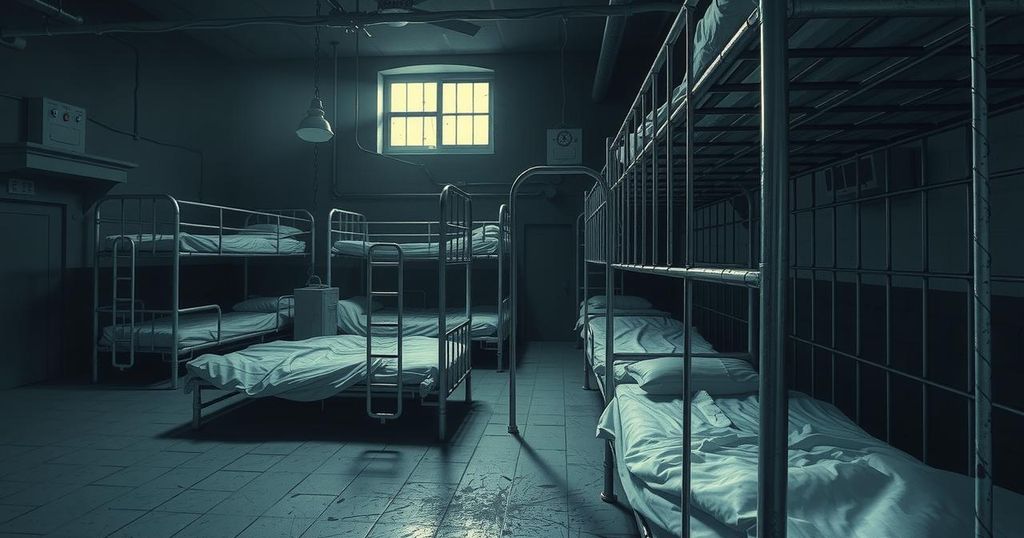El Salvador’s CECOT Faces Backlash Over Treatment of Venezuelan Migrants
The transfer of alleged Venezuelan gang members to El Salvador’s CECOT has drawn significant criticism due to potential human rights abuses. Concerns have surfaced regarding the legality of their deportation under the Alien Enemies Act, particularly since many do not have criminal records. Human rights organizations report on the harsh conditions within CECOT, including overcrowded cells and lack of communication with families, revealing serious implications for international human rights standards.
The recent transfer of alleged Venezuelan gang members to the Terrorism Confinement Center (CECOT) in El Salvador has drawn criticism from various organizations concerning abuses within the prison. President Nayib Bukele shared a video showcasing the transfer of these individuals, but concerns have been raised regarding the legitimacy of their deportations. Many of the detainees allegedly do not have criminal records, raising questions about the application of U.S. immigration policies.
CECOT serves as one of Latin America’s largest prisons, currently housing around 40,000 inmates, and was established as part of a broader crackdown on gang violence in El Salvador, known for having one of the highest incarceration rates globally. Recently, the U.S. under the Trump administration endorsed the deportation of Venezuelan migrants under the Alien Enemies Act, but reports indicate that many transferred did not have any affiliation with the Tren de Aragua gang.
U.S. Immigration and Customs Enforcement (ICE) officials have noted that many deportees lack criminal records in the United States. Robert Cerna, ICE’s Acting Field Office Director, defended the removals by asserting that the absence of a criminal history does not necessarily reflect an individual’s threat level. This has sparked contention among family members and legal advocates for the detained individuals, who claim some detainees are innocent.
Concerns regarding the treatment of detainees at CECOT have been emphasized by various human rights groups. Mothers and advocates report severe restrictions on communication and legal representation for those imprisoned at CECOT. Reports indicate that detainees may only have limited time outside their cells and are often crowded into unsanitary living conditions.
Amnesty International has consistently documented human rights violations in Salvadoran detention centers and prisons, culminating in alarms about the treatment of Venezuelan migrants at CECOT. International human rights reports echo concerns about prison conditions, highlighting overcrowding and inadequate medical care as pervasive issues.
The deportation of alleged gang members to CECOT raises significant questions about human rights and due process within immigration practices. The critiques from advocates and the troubling conditions within CECOT pose serious challenges to the integrity of the justice system in both El Salvador and the United States. Authorities must address these concerns to ensure adherence to human rights standards.
Original Source: abcnews.go.com








Post Comment